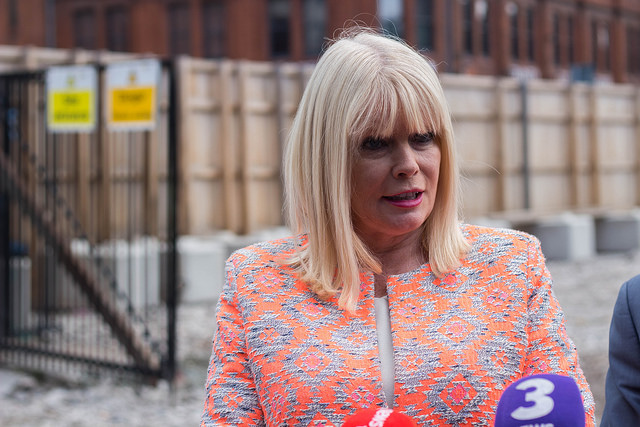Today at the European Conference on Gender Equality in Trinity, Minister for Higher Education Mary Mitchell O’Connor announced the launch of a document designed to guide Irish higher education institutions on gender and diversity issues.
Published by the Technological Higher Education Association (THEA), the document will inform policy in all 14 institutes of technology in the country. The central mission of the policy is to ensure equal opportunities for everyone, regardless of gender, ethnicity, or sexual orientation, to access higher education and advance their careers.
The document includes six primary objectives, which include addressing gender imbalance among staff and students, establishing structures that allow for equal career advancement opportunities for all, and promoting gender balance in the statutory decision-making committees. According to the guidelines, there should be no less than 40 per cent membership of either gender on statutory decision-making committees, governing bodies and academic councils.
Speaking at the conference, Mitchell O’Connor reiterated how the recent Higher Education Authority (HEA) report on gender equality in colleges had illustrated the extent of the problem. She said the new document “represents a quantifiable aspiration within the technological sector to increase the number of females in leadership roles and to enhance the diversity of both the student and staff community”. Mitchell O’Connor also expressed her hope that it will “drive initiatives” as institutes apply for Athena SWAN awards.
Regina Moran, the Chair of the Technological Higher Education Association Council of Presidents, welcomed the statement, calling it was a significant milestone in the evolution of Ireland’s technological higher education sector. “We need to do much more in order to ensure diverse proportional representation at senior level”, she said in a press statement.
Dr Joseph Ryan, the CEO of the Technological Higher Education Association, referred to the statement as the “most significant first step” towards greater diversity across all 14 institutes of technology. Ryan said that his organisation is looking forward to working alongside Mitchell O’Connor to produce action plans that support each of the six key objectives outlined in the statement.
The statement follows the announcement of Ireland’s first technological university, which will merge Dublin Institute of Technology (DIT), IT Tallaght and IT Blanchardstown. Set to be the country’s biggest third-level institution, the merger will formally be known as Technological University Dublin.
Gender inequality is a problem that has plagued the higher education sector for years now. A recent report issued by the Higher Education Authority (HEA) found progress in gender equality to be slow, noting a one to two per cent improvement in the representation of women in senior positions.
Another HEA report – published last year in the wake of the controversial court case involving an NUIG lecturer and the university – made a number of sweeping recommendations in a bid to ensure greater equality across the sector.
Many initiatives have been undertaken by universities to tackle gender equality problems. In recent years, Irish institutions have adopted the Athena Swan Charter – a system that awards universities for good practice in the area of gender equality. Since then, new targets have been agreed whereby Irish third-level institutions have to achieve a bronze institutional Athena SWAN award by 2019 to be granted funding by the Irish Research Council, Science Foundation Ireland and the Health Research Board. Following on from this, institutions will have to achieve the silver award by 2023 – a level that no Irish university has reached so far.







